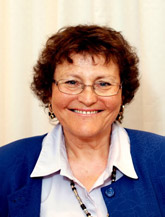
I am a trained and qualified psychotherapist in two areas of the psychotherapeutic counselling work. Firstly I am a somatic psychotherapist working in Richmond, individually with men and women of all ages and secondly, a big part of my practice consists of working with couples.
Couples can be married, or single they can be of the same sex or not, they can be of a different culture or religion and many more variations. I work in a psychodynamic way which strives to understand the psychological dynamics. With couples the dynamics are played out between the couple. Click here to read a condensed version of a paper titled Working With Couples that I wrote and presented at the 2009 ASPA conference.
Somatic psychotherapy is a unique field of psychotherapy because it brings together the mind process, and the body process. (Soma means body in Greek) so on one hand I work with the thought process and on the other hand pay attention to what happens in the body at the same time.
I would like to give you an example to make it clearer. A person is involved in a car accident and he/she cannot “get over it”. The experience affects their sleep pattern, their eating pattern and throws them into quite a depressive place. The accident had not only affected their thinking process. They might be affected by memories of the screeching wheels, the smell of rubber, the screaming, the nausea, the pain and other aspects or their experience. All the aspects of the experience have to be worked through in order to contain the experience and make it possible to live with.
This is just an example but all the experiences that we live through are lived within a body. The body holds on to different aspects of the experiences and the mind tries to make sense of it all.
My work consists of a number of strands. One is what Freud termed the “talking cure” where I want to understand the working of the mind, the thought processes. I am also listening to the “echoes of the past” the voice of the child that the client once was. I want to understand how that child, who had lived through family and childhood experiences, is still influencing the life of the adult who sits in the room with me.
Another strand of my work is the body process that can be observed and talked about and could also develop into body work that enables release of emotional blockages. Sometimes, for some people there is a need to be touched and affirmed on a bodily level, so the work can involve touch as well. The area of touch in psychotherapy is very sensitive since it brings another level of connection with the therapist and might trigger negative experiences from the past. Therefore before touch is incorporated into the therapy, the client and I have to understand what is really needed and how the touch is going to affect that client.>
Several “schools of thinking” have influenced my therapeutic thinking and my understanding of the human struggle for meaning in our life.
The first one was Kohut and his theory of Self Psychology where the emphasis is on empathy. Through empathy I strive to come as close as possible to the felt experience of the client in order to see the situation from his/her point of view.
Empathy leads me to better understanding, not just the experience itself, but the conclusions and life decisions that this client had come to. These decisions I term survival decisions and they lead to the formation of psychological survival structures in the personality. These survival structures are structures that enable the child to survive the experiences in his early environment. The problem is, and that is where many people are stuck, that these structures in adulthood are not serving the adult anymore but there is stuckness in a familiar pattern and inability to move from that pattern. I have heard many times people say – “I don’t like my behaviour but I keep doing it again and again” or “why is this thing always happening to me?” A child may grow up in a family where they feel that they are consistently, not being heard. As an adult that person finds himself/herself in a relationship where they are again not being heard. They suffered from it in childhood and yet they have chosen a relationship that gives them the same experience. How come this is happening?
Another theoretical orientation that influenced me is Klein from the Object Relation school, who through her work with children came to see the negative forces that are at work from the early stages of the child’s life. Klein realized how from infancy the baby can experience feeling attacked, persecuted envied or annihilated. These early feelings and experiences lead to certain ways of emotional self organization within relationships. Sometimes mothers can experience a great deal of disappointment in the baby. Maybe she wanted a boy but gave birth to a girl? Maybe the baby looked like a member of her family whom she disliked. The disappointment, maybe even rejection of this baby, hopefully short lived, is projected into the baby and he/she can become unsettled, hard to sooth, cry a lot, has difficulties with sleeping and feeding and sometimes termed “a difficult baby”. These early experiences affect the relationships in adulthood.
Bowlby’s attachment theory is paramount as well. Bowlby identified, through research with young toddlers, different styles in which babies become attached to their mothers – mothers as a general term for the main care giver. Anxious mothers attach to their babies differently from how the absent mindedly mothers, the ambivalent mothers or the disorganized chaotic mothers, attach to their babies. The style of attachment is etched in our minds and influences how we relate to other people. The mother who is very anxious about her baby and therefore cannot relax and enjoy her baby, she is worried and too fussy will create a different dynamic in her baby to the mother who is “away with the fairies” not really available to her baby and his/her needs.
Important research has been done, in the last decade in the field of Neurobiology. The amygdala gland that processes emotional experiences is active from birth. However the hippocampus that is in charge of making sense of experiences is becoming active later on in life around 2-3 years old. That means that the baby and the young child are flushed with emotional experiences – good and bad – but don’t have yet the structure that makes sense of the experiences. Repeated experiences etch themselves onto the brain in the form of neural pathways. Every time when a certain experience occurs the same certain pathways will fire, to produce a reaction. It is shown through MRI scans that the brain is plastic and can change. New repeated experiences.
You will find me in Richmond close to the Railway Station.

